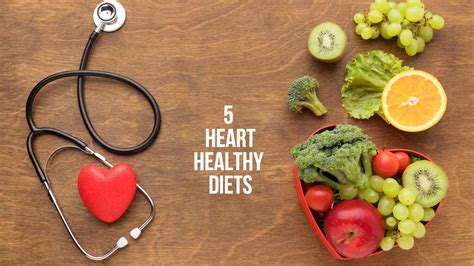
“Unhealthy” foods, often considered guilty pleasures, might possess unexpected benefits in preventing heart disease and diabetes, according to recent research challenging conventional dietary wisdom. While moderation remains key, emerging studies suggest that certain components within these foods could play a protective role against chronic illnesses.
The long-demonized foods such as chocolate, coffee and even alcohol, have been shown to have properties that could reduce the risk of heart disease and type 2 diabetes. However, experts urge caution in interpreting these findings, emphasizing that the overall dietary pattern and lifestyle factors remain paramount for long-term health.
“It’s not a license to go wild on these foods,” cautions Dr. Frank Hu, chair of the Department of Nutrition at the Harvard T.H. Chan School of Public Health. “But it does suggest that small amounts of these foods, within the context of a healthy diet, may not be as harmful as we once thought, and potentially even beneficial for certain individuals.”
The Sweet Truth About Chocolate
Dark chocolate, in particular, has garnered attention for its potential cardiovascular benefits. Rich in flavonoids, specifically flavanols, dark chocolate has been linked to improved blood vessel function, reduced blood pressure, and enhanced insulin sensitivity.
A study published in the journal Heart found that individuals who consumed dark chocolate more than once a week had an 8% lower risk of coronary heart disease compared to those who rarely or never ate it. The beneficial effects are attributed to flavanols, which act as antioxidants, protecting cells from damage and reducing inflammation.
“Flavanols in dark chocolate can help relax blood vessels, improve blood flow, and lower blood pressure,” explains registered dietitian Lisa Moskovitz, RD, CDN. “However, it’s crucial to choose dark chocolate with a high cocoa content (70% or higher) and minimal added sugar and unhealthy fats.”
However, the form in which chocolate is consumed matters greatly. Milk chocolate and white chocolate, due to their higher sugar and fat content, do not offer the same benefits and should be consumed sparingly. Furthermore, the study highlights the importance of portion control. Consuming excessive amounts of even dark chocolate can lead to weight gain and negate any potential health benefits.
Coffee: More Than Just a Morning Jolt
Coffee, a staple in many people’s daily routines, has also been linked to a reduced risk of type 2 diabetes and cardiovascular disease. Studies have shown that regular coffee consumption can improve insulin sensitivity, reduce inflammation, and enhance liver function.
A meta-analysis of multiple studies published in the European Journal of Epidemiology found that individuals who drank 3-4 cups of coffee per day had a 25% lower risk of developing type 2 diabetes compared to those who drank little or no coffee. The beneficial effects are attributed to compounds such as chlorogenic acid, which acts as an antioxidant and anti-inflammatory agent.
“Coffee contains a variety of bioactive compounds that can positively impact glucose metabolism and cardiovascular health,” says Dr. Rob van Dam, an adjunct professor of nutrition and epidemiology at the Harvard T.H. Chan School of Public Health. “However, it’s important to be mindful of added sugars, creamers, and artificial sweeteners, which can offset the benefits.”
The method of coffee preparation can also influence its health effects. Filtered coffee, for example, is lower in diterpenes, compounds that can raise cholesterol levels, compared to unfiltered coffee, such as espresso or French press. Furthermore, individuals sensitive to caffeine should limit their intake or opt for decaffeinated versions.
The Paradox of Alcohol
Moderate alcohol consumption has long been associated with potential cardiovascular benefits, particularly red wine. Studies have shown that moderate intake can raise levels of high-density lipoprotein (HDL) cholesterol (the “good” cholesterol), reduce blood clotting, and improve blood vessel function.
A study published in the Annals of Internal Medicine found that moderate alcohol consumption (up to one drink per day for women and up to two drinks per day for men) was associated with a lower risk of coronary heart disease and ischemic stroke. The benefits are attributed to compounds such as resveratrol, found in red wine, which acts as an antioxidant and anti-inflammatory agent.
“Resveratrol, found in the skin of red grapes, has been shown to protect against damage to blood vessels, reduce LDL cholesterol (the “bad” cholesterol), and prevent blood clots,” explains Dr. Suzanne Steinbaum, a cardiologist at Mount Sinai Heart in New York City. “However, it’s crucial to emphasize that these benefits are only observed with moderate consumption. Excessive alcohol intake can lead to a host of health problems, including liver disease, heart failure, and certain types of cancer.”
The type of alcohol consumed also matters. Red wine, due to its higher antioxidant content, is often considered the most beneficial. However, other types of alcohol, such as beer and spirits, can also offer some cardiovascular benefits when consumed in moderation. It’s essential to avoid sugary mixed drinks and excessive consumption, which can negate any potential health benefits.
The Importance of Context and Moderation
While these “unhealthy” foods may offer some health benefits, experts stress the importance of context and moderation. These foods should be incorporated into a healthy dietary pattern that includes plenty of fruits, vegetables, whole grains, and lean protein.
“It’s not about adding these foods to an already unhealthy diet,” cautions Dr. Hu. “It’s about replacing less healthy options with these potentially beneficial foods within the context of a balanced and nutritious diet.”
Furthermore, individual responses to these foods can vary. Some individuals may be more sensitive to caffeine or alcohol, while others may have allergies or intolerances to certain ingredients. It’s essential to listen to your body and adjust your consumption accordingly.
“There’s no one-size-fits-all approach to nutrition,” says Moskovitz. “What works for one person may not work for another. It’s important to consult with a registered dietitian or healthcare provider to determine the best dietary pattern for your individual needs and health goals.”
The research highlighted does not give a green light for people to freely consume these items. They need to be part of a balanced diet and the possible health benefits should be evaluated on a case-by-case basis.
The Bigger Picture: A Holistic Approach to Health
Ultimately, maintaining optimal health requires a holistic approach that encompasses not only diet but also exercise, stress management, and adequate sleep.
Regular physical activity can improve cardiovascular health, reduce blood pressure, and enhance insulin sensitivity. Stress management techniques, such as yoga, meditation, and deep breathing exercises, can lower cortisol levels and reduce inflammation. Adequate sleep is essential for overall health and well-being, as it allows the body to repair and regenerate.
“Diet is just one piece of the puzzle,” says Dr. Steinbaum. “It’s important to address all aspects of your lifestyle to optimize your health and reduce your risk of chronic diseases.”
While the idea that traditionally “unhealthy” foods may have some health benefits is intriguing, it’s crucial to approach this information with a balanced perspective. Remember that moderation and context are key, and a holistic approach to health is essential for long-term well-being. Indulging in a piece of dark chocolate or enjoying a cup of coffee can be part of a healthy lifestyle, but these treats should complement, not replace, a foundation of nutritious foods and healthy habits.
Frequently Asked Questions (FAQs)
1. Does this mean I can eat as much chocolate, coffee, and alcohol as I want?
No. The research suggests potential benefits from moderate consumption of these foods within a healthy diet. Excessive consumption can negate any benefits and lead to other health problems. The key is moderation and balance. “It’s not a license to go wild on these foods,” cautions Dr. Frank Hu, chair of the Department of Nutrition at the Harvard T.H. Chan School of Public Health.
2. What kind of chocolate is best for heart health?
Dark chocolate with a high cocoa content (70% or higher) and minimal added sugar and unhealthy fats is considered the most beneficial. The flavanols in dark chocolate are responsible for its potential cardiovascular benefits. Milk chocolate and white chocolate offer limited health benefits due to their higher sugar and fat content.
3. How much coffee is considered safe and potentially beneficial?
Studies suggest that 3-4 cups of coffee per day may be associated with a reduced risk of type 2 diabetes. However, individual tolerance to caffeine varies. It’s important to be mindful of added sugars, creamers, and artificial sweeteners. Filtered coffee may be preferable as it is lower in diterpenes, compounds that can raise cholesterol levels.
4. What is considered moderate alcohol consumption, and what are the potential risks?
Moderate alcohol consumption is defined as up to one drink per day for women and up to two drinks per day for men. While some studies suggest potential cardiovascular benefits, excessive alcohol intake can lead to liver disease, heart failure, certain types of cancer, and other health problems.
5. Should I start consuming these foods if I don’t already?
Not necessarily. If you don’t already consume these foods, there’s no need to start solely for potential health benefits. The focus should be on maintaining a healthy dietary pattern that includes plenty of fruits, vegetables, whole grains, and lean protein. If you do choose to incorporate these foods, do so in moderation and within the context of a balanced diet. Consulting with a healthcare professional or registered dietitian can provide personalized guidance.
Expanded In-Depth Analysis, Background Information, and Context
The article’s findings are intriguing but need further investigation before conclusive recommendations can be made. It challenges the prevailing narrative around certain foods and their impact on health, prompting a more nuanced understanding of nutrition and disease prevention.
Diving Deeper into Flavonoids and Antioxidants:
The recurring theme connecting chocolate, coffee, and red wine is their richness in compounds known as flavonoids, a type of antioxidant. Antioxidants protect the body from damage caused by free radicals, unstable molecules that can contribute to inflammation and chronic diseases like heart disease, cancer, and diabetes.
Flavonoids are found in various plant-based foods, including fruits, vegetables, tea, and cocoa. Different types of flavonoids exist, each with its unique properties and potential health benefits. For example, flavanols, abundant in dark chocolate and cocoa, have been linked to improved blood vessel function and reduced blood pressure.
Chlorogenic acid, a prominent antioxidant in coffee, has been shown to improve glucose metabolism and reduce inflammation. Resveratrol, found in red wine and grapes, has been associated with cardiovascular protection and anti-aging effects.
However, the bioavailability of these compounds, meaning the extent to which they are absorbed and utilized by the body, can vary depending on factors such as the food matrix, processing methods, and individual differences in metabolism. Therefore, it’s crucial to consider the overall dietary context and individual factors when evaluating the potential health benefits of these foods.
The Role of Inflammation in Chronic Disease:
Chronic inflammation is a major underlying factor in many chronic diseases, including heart disease, type 2 diabetes, Alzheimer’s disease, and certain types of cancer. Inflammation is the body’s natural response to injury or infection, but when it becomes chronic, it can damage tissues and organs, leading to disease.
Antioxidants, such as those found in chocolate, coffee, and red wine, can help reduce inflammation by neutralizing free radicals and protecting cells from damage. Additionally, these foods may contain other anti-inflammatory compounds that contribute to their potential health benefits.
However, it’s important to note that diet is just one factor influencing inflammation. Other lifestyle factors, such as exercise, stress, sleep, and exposure to environmental toxins, can also play a significant role. A holistic approach to health that addresses all these factors is essential for managing inflammation and reducing the risk of chronic disease.
The Importance of Portion Control and Overall Dietary Pattern:
The article emphasizes the importance of portion control and overall dietary pattern when incorporating these “unhealthy” foods into your diet. Even beneficial foods can be detrimental if consumed in excessive amounts.
A healthy dietary pattern should be based on whole, unprocessed foods, including plenty of fruits, vegetables, whole grains, lean protein, and healthy fats. These foods provide essential nutrients, fiber, and antioxidants that support overall health and reduce the risk of chronic disease.
“Unhealthy” foods, such as chocolate, coffee, and alcohol, can be enjoyed in moderation as part of a balanced diet, but they should not replace nutrient-rich foods. It’s also important to be mindful of added sugars, unhealthy fats, and artificial ingredients, which can negate any potential health benefits.
Individual Variability and Personalized Nutrition:
The article highlights the importance of individual variability and personalized nutrition. What works for one person may not work for another. Factors such as genetics, age, sex, health status, and lifestyle can influence an individual’s response to certain foods.
For example, individuals sensitive to caffeine should limit their coffee intake or opt for decaffeinated versions. People with diabetes should be mindful of the sugar content of chocolate and alcohol. Individuals with liver disease should avoid alcohol altogether.
Consulting with a registered dietitian or healthcare provider can help you determine the best dietary pattern for your individual needs and health goals. Personalized nutrition takes into account your unique characteristics and preferences to create a sustainable and effective eating plan.
The Potential Downsides and Considerations:
While the article focuses on the potential benefits of these foods, it’s essential to acknowledge the potential downsides and considerations.
- Chocolate: High in calories and saturated fat, especially milk chocolate. Can contribute to weight gain and elevated cholesterol levels if consumed in excess.
- Coffee: Can cause anxiety, insomnia, and digestive problems in sensitive individuals. May interact with certain medications.
- Alcohol: Can lead to liver damage, heart failure, certain types of cancer, and addiction if consumed in excess. Should be avoided by pregnant women and individuals with certain medical conditions.
It’s important to weigh the potential benefits against the potential risks and make informed decisions about your consumption of these foods.
The Need for Further Research:
The article highlights the need for further research to fully understand the potential health benefits of these “unhealthy” foods and to determine the optimal amounts and forms for consumption.
More studies are needed to investigate the long-term effects of these foods on cardiovascular health, diabetes prevention, and other health outcomes. Additionally, research is needed to identify the specific mechanisms by which these foods exert their beneficial effects and to determine how these effects vary among individuals.
Well-designed clinical trials with large sample sizes and long follow-up periods are essential for providing definitive evidence and guiding public health recommendations.
The Evolution of Nutritional Science:
The article reflects the evolving nature of nutritional science. For years, certain foods were demonized due to their perceived negative impact on health. However, emerging research is challenging these conventional beliefs and highlighting the potential benefits of certain components within these foods.
Nutritional science is a complex and ever-changing field. New studies are constantly being published, and our understanding of the relationship between diet and health is continually evolving. It’s important to stay informed about the latest research and to approach nutritional information with a critical and balanced perspective.
Moving Beyond Good vs. Bad Foods:
The article encourages a shift away from the simplistic notion of “good” vs. “bad” foods. Instead, it promotes a more nuanced understanding of nutrition that considers the overall dietary pattern, portion sizes, individual variability, and lifestyle factors.
Focusing on whole, unprocessed foods as the foundation of your diet is essential, but allowing for occasional indulgences in “unhealthy” foods can be part of a sustainable and enjoyable eating pattern. The key is moderation, balance, and mindful consumption.
The Importance of Consulting Healthcare Professionals:
The article repeatedly emphasizes the importance of consulting with healthcare professionals, such as registered dietitians and physicians, before making significant changes to your diet.
Healthcare professionals can provide personalized guidance based on your individual needs, health status, and goals. They can help you assess the potential benefits and risks of incorporating certain foods into your diet and develop a sustainable and effective eating plan.
Self-treating or relying solely on information from the internet can be dangerous. It’s essential to seek professional advice to ensure that you’re making informed decisions about your health.
Conclusion:
The notion that “unhealthy” foods like chocolate, coffee, and alcohol may offer some health benefits is intriguing and warrants further investigation. However, it’s crucial to approach this information with a balanced perspective and to avoid oversimplifying the complex relationship between diet and health.
Moderation, context, and a holistic approach to health are key. These foods can be enjoyed in moderation as part of a balanced diet, but they should not replace nutrient-rich foods. Consulting with healthcare professionals can provide personalized guidance and help you make informed decisions about your health. The evolving nature of nutritional science highlights the need for ongoing research and a critical approach to dietary information. Embracing a nuanced understanding of nutrition and focusing on a holistic approach to health can lead to improved well-being and a reduced risk of chronic disease. Ultimately, a healthy lifestyle encompasses not just what you eat, but also how you move, manage stress, and prioritize sleep. The potential benefits discussed in this article should serve as a reminder to approach nutrition with an open mind, continuously learning and adapting to the latest scientific findings while remaining grounded in the principles of balance and moderation. The information in the article should not be taken as medical advice. Always consult with a qualified healthcare professional for personalized recommendations.









